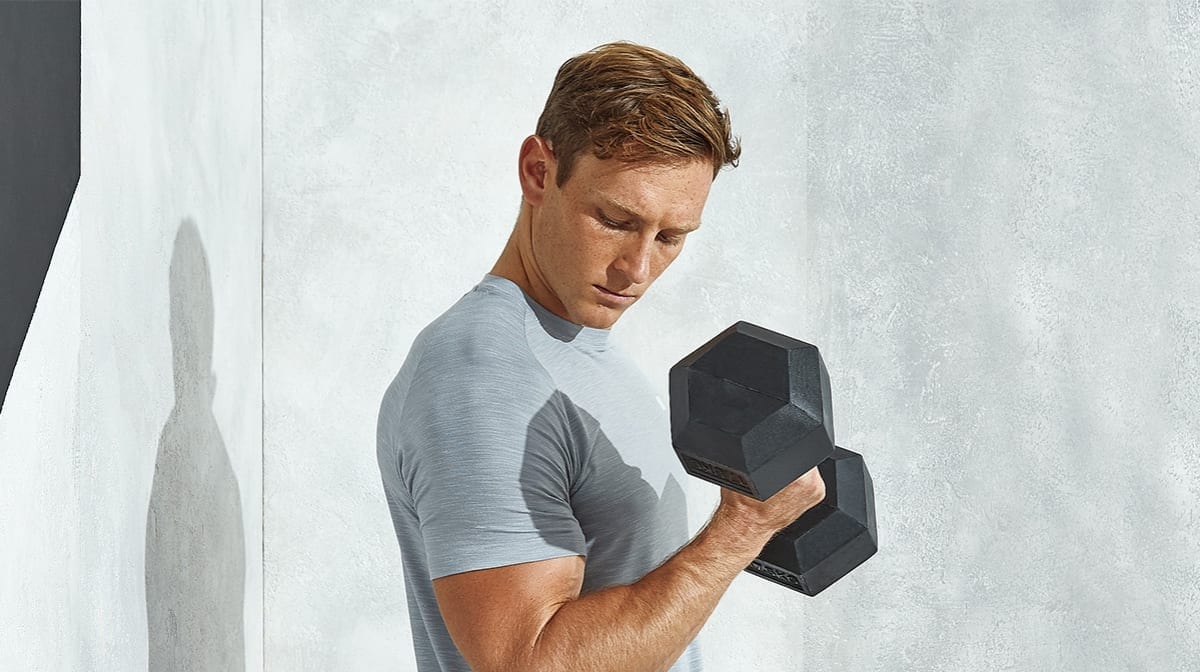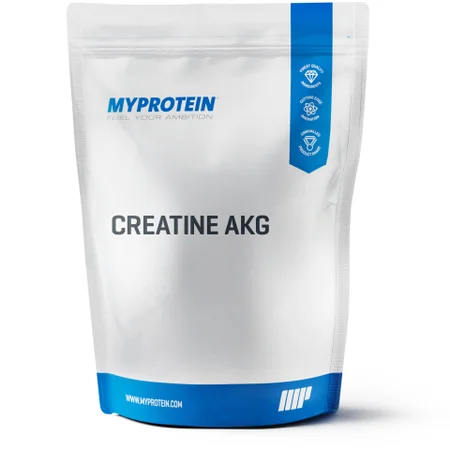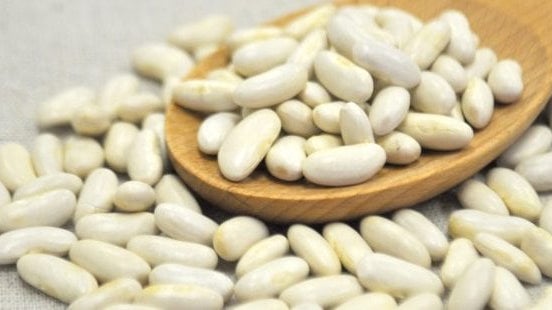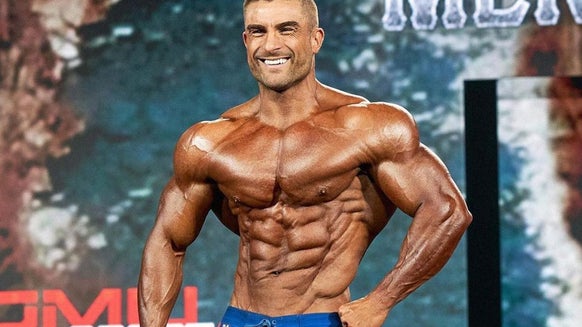
Creatine is one of the most researched sports supplements on the market. It gives you the majority of energy for short-term, maximum exercise such as sprinting a 100m or lifting weights. But, it is also one of the most misunderstood sports supplements. Some claim this type of supplementation is dangerous and unsafe, despite its widespread use.
https://youtu.be/Gtri-auvjRc
What Is Creatine?
Creatine is naturally produced in your body from amino acids - the building blocks of protein. It's also found in protein-rich foods, mainly meat and fish. But, you would need to eat a lot of meat and fish to obtain the right amount. This makes supplementing inexpensive and efficient way to increase intake.
How Does It Work?
Creatine helps to regenerate a molecule called adenosine triphosphate (ATP), your body's main source of energy. When creatine stores in your muscles are depleted, the production of ATP comes to a screeching halt and your energy is dramatically decreased. Supplementing with it increases the available fuel to power ATP, which can increase muscle strength, size and power output.

Who Can Benefit?
Supplementing with creatine is not just for bodybuilders; several types of athletes can benefit like sprinters, swimmers, and soccer players. Creatine supplementation also can help increase your strength, power, and muscle size making it useful for sports like football and hockey. But, this type of supplementation isn't effective for exercise and events lasting more than 90 seconds, for example, long-distance running.
How To Take Creatine
Creatine is supplemented through one of two ways. The first way is called 'loading.' The loading phase requires taking 20g in split doses for 5-7 days. Following the loading phase, 3-5 g of it is supplemented daily. This is called the maintenance phase. The idea of loading is to saturate the muscle cells resulting in faster results. Supplementing with 3-5 g, without the loading phase, is the other method. Choosing this route will get you the same results as loading, but it will take you longer to experience the full benefits of creatine.
Regardless of the method you choose, cycling is not needed. Cycling creatine means going “on” and “off” of it every couple of weeks. People who recommend cycling this supplement claim that it will maximize the it's effects and is needed to give your body a break. But the truth is, creatine cycling will not give you any added benefit over not cycling creatine.

When To Take Creatine
There are two general recommendations when it comes to supplementing with creatine. The first is to take it before your workout because it increases your strength. The second is to take it after your workout because it absorbs better.
According to one study, taking it after your workout is best. For the study, 19 male recreational bodybuilders were randomly divided into two groups. One group took 5 g of creatine before their workout while the other group took 5 g after their workout. For 4 weeks, the men trained 5 days a week and kept their protein intake similar.
At the end of the 4 weeks, researchers found that those who took it after their workout gained more muscle mass than those taking creatine before their workout. However, the benefit was insignificant. Meaning, the advantage of taking it after exercise could have occurred by chance.
The timing doesn’t seem to matter. This is because it has no immediate effects on strength or muscle size. Only when your body is fully saturated with creatine will you benefit from it. Therefore, take this supplement when it’s convenient for you, whether it’s in the morning, before your workout, after your workout, or at night.

Safety
Creatine is one of the safest sports supplements there is, yet many myths about it linger. The main concern is that it damages your kidneys. But there is zero data to support this notion. In fact, there are several studies showing that it has absolutely no effect on kidney function in healthy people. One study found no changes in kidney function between collegiate football players who supplemented and those who didn't for nearly two years. What's more is that another study showed no changes in kidney function for individuals consuming 10 g - twice the recommended daily dose - of it for 12 weeks.
Others claim that this type of supplementation can cause dehydration, injury and stomach cramps, however, to date there have been no studies showing that supplementation causes any of these issues.

The Best Creatine Supplements
If you're wondering what supplements to take then why not try one of the following:
Take Home Message
Creatine Monohydrate is perhaps the most inexpensive, safest, and beneficial dietary supplement there is. It simply works!

References: Lugaresi, R., Leme, M., de Salles Painelli, V., Hisashi Murai, I., Roschel, H., Sapienza, M. T., Herbert Lancha Junior, A., Gualana, B. . (2013). Does long-term creatine supplementation impair kidney function in resistance-trained individuals consuming a high-protein diet? . J Int Soc Sports Nutr. 10 (26) Kreider RB, Melton C, Rasmussen CJ, Greenwood M, Lancaster S, Cantler EC, Milnor P, Almada AL.. (2003). Long-term creatine supplementation does not significantly affect clinical markers of health in athletes.. Mol Cell Biochem. 244 (1-2) Gualano B, Ugrinowitsch C, Novaes RB, Artioli GG, Shimizu MH, Seguro AC, Harris RC, Lancha AH Jr.. (2008). Effects of creatine supplementation on renal function: a randomized, double-blind, placebo-controlled clinical trial. Eur J Appl Physiol. 103 (1) Darren G. Candow, Emelie Vogt, Sarah Johannsmeyer, Scott C. Forbes, and Jonathan P. Farthing. (2015). Strategic creatine supplementation and resistance training in healthy older adults. Appl Physiol Nutri Metab. 40 Antonio, J. & Ciccone, V. (2013). The effects of pre versus post workout supplementation of creatine monohydrate on body composition and strength. J Int Soc Sports Nutr. 6 Thomas W Buford, Richard B Kreider, Jeffrey R Stout, Mike Greenwood, Bill Campbell, Marie Spano, Tim Ziegenfuss, Hector Lopez, Jamie Landis and Jose Antonio . (2007). International Society of Sports Nutrition position stand: creatine supplementation and exercise. J Int Soc Sports Nutr. 4 (6) Astorino TA, Marrocco AC, Gross SM, Johnson DL, Brazil CM, Icenhower ME, Kneessi RJ.. (2005). Is running performance enhanced with creatine serum ingestion?. J Strength Cond Res. 19 (4) Rawson, E. S. & Volek, J. S.. (2003). Effects of creatine supplementation and resistance training on muscle strength and weightlifting performance. J Strength Cond Res. 17 (4) Ostojic, S. M.. (2004). Creatine supplementation in young soccer players. Int J Sport Nutr Exerc Metab. 14 (1)









